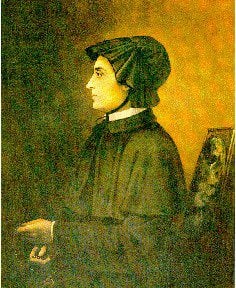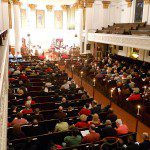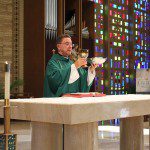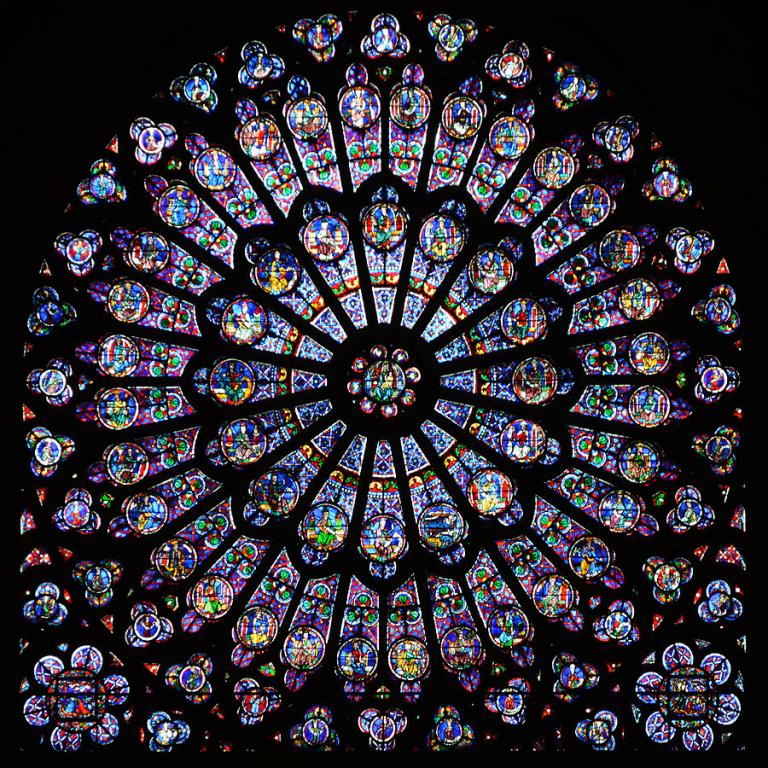
It would seem that I have not, despite multiple years of blogging, blogged about her, the first American citizen to have been canonized, a wife, mother, widow, and religious foundress, whose feast day is today, the anniversary of her death on January 4, 1821.
She was raised as an Episcopalian, devout but also happy to enjoy life as part of the social elite of New York in the early years of independence. After marrying William Seton, of a well-to-do business family, she had five children, but the family business crashed and William suffered from tuberculosis, so they travelled with their eldest daughter to Italy in 1803, in hopes that the milder weather could improve his health, but he died shortly after arriving. For some time after his death, before she could arrange return passage, she stayed with the Filicchi family, business associates of the Setons, and Antonio and his wife Amabilia shared with her both the treasures of Italy and their Catholic faith. Elizabeth returned to the United States the following spring, and converted to Catholicism in 1805, whereupon she faced several years of rejection by her family and struggle to support her children before, with the financial support of benefactors, she founded a school for poor children and a religious order, the Sisters of Charity.
Some time ago, I had acquired a collection of her writings, from the Sources of American Spirituality series (Paulist Press, edited by Ellin Kelly and Annabelle Melville, 1987). Here are a few of the passages that I had bookmarked at the time.
This is some particular festival here — Mrs. F. took me with her to mass as she calls it, and we say to church — I don’t know how to say the awful effect at being where they told me God was present in the blessed sacrament, and the tall pale meek heavenly looking man who did I don’t know what for I was the side of the alter, so that I could not look up without seeing his countenance on which many lights from the altar reflected, and gave such strange impressions to my soul that I could but cover my face with my ands and let the tears run — oh my the very little while we were there will never be forgotten though I saw nothing and no one, but this more than human person as he seemed to me. (p. 131, Feb 2, 1804 in her journal, written as addressed to her sister-in-law)
Then on February 10th (p 131-2):
these dear people are so strange about religion. I asked Mr. F, something I don’t know what about the different religions and he began to tell me there was only one true Religion and without a right Faith we could not be acceptable to God — O Sir then said I, if there is but one Faith and nobody pleases God without it, where are all the good people who die out of it — I don’t know he answered, that depends on what light of Faith they had received, but I know where people will go who can know the right Faith if they pray for it and enquire for it, and yet do neither, — much as to say Sir you want me to pray and enquire and be of your Faith said I laughing — pray, and enquire said he, that is all I ask you. so dearest Bec I am laughing with God when I try to be serious and say daily as the good gentleman told me in old Mr. Popes words, “if I am right O teach my heart still in the right to stay if I am wrong thy grace impart to find the better way.” not that I can think there is a better way than I know — but every one must be respected in their own —
the other day a young Englishman brought the blood from my very heart to my face in the church of Montenay where the F. families took Ann and I to a lovely part of the country where Mr. F. had been concealed by the blessed inhabitants of the covent during some political revolution, and they invited us to hear mass in their chapel, there this poor young Englishman at the very moment the Priest was doing the most sacred action they call the elevation, (after the bread you know is blessed with the prayers as they do when we go to communion) just at that moment this wild young man said loud in my ear this is what they call there real PRESENCE – my very heart trembled with shame and sorrow for his unfeeling interruption of their sacred adoration for all around was dead silence and many were prostrated — involuntarily I bent from him to the pavement and thought secretly on the word of St. Paul with starting tears “they discern not the Lords body” and the next thought was how should they eat and drink their very damnation for not discerning it, if indeed it is not there — yet how should it be there, and how did he breathe my Soul in me, and how and how a hundred other things I know nothing about.
and on the 24th (p. 133)
My sister dear how happy would we be if we believed what these dear souls believe, that they possess God in the Sacrament and that he remains in their churches and is carried to them when they are sick.
She then returned to the United States and engaged in a period of study and deliberation documented by letters to the Filicchis and others, struggles compounded by the fact that Catholics were deemed to be the poor rabble of the city, finally in January 1805 writing in another journal account (p. 164-165):
I WILL GO PEACABLY AND FIRMLY TO THE CATHOLICK CHURCH – for if Faith is so important to our Salvation I will seek it where true Faith first begun, seek it among those who received it from GOD HIMSELF, the controversies on it I am quite incapable of deciding, and as the strictest Protestant allows Salvation to a good Catholick, to the Catholicks I will go, and try to be a good one, may God accept my intention and pity me.
On March 14, 1805, she made her profession of faith, and on March 20th, her first confession, and on March 25, her first communion, writing
At last Amabilia — at last — GOD IS MINE and I AM HIS — Now let all go its round – I HAVE RECEIVED HIM
The remainder of the volume is less interesting to me because it’s her correspondence, more journals, etc., from her post-conversion period and her years as Mother Seton. For more details, here’s a brief biography of her, and a lengthier one here.
But here’s what I’m thinking about in particular today: I’ve been writing again about Catholicism and evangelism — observing that Evangelical Protestants are very diligent about reaching out to the “unchurched,” as they say, but that Catholics seem a lot iffier about whether being Catholic actually matters. (Not long ago, in an article on the latest Chicago church closings, there was a quote from some Archdiocese administrator to the effect of, “well, we’re just not going to see any new Catholics in those neighborhoods because no historically-Catholic immigrant groups appear to be moving in, so there’s really nothing we can do,” and that really stuck in my craw.)
And here’s what strikes me: without Antonio Filicci, there would have been no Saint Elizabeth Ann Seton, no Mother Seton of the Sisters of Charity. Maybe there would have been a Sisters of Charity, had those benefactors been able to recruit someone else in her stead, but that’s not a sure thing since it was because she was charismatic that she drew followers to her, and it also helped quite a bit that she was of the upper class and educated when the Catholics she educated were the “great unwashed.”
Yet I struggle to imagine a “Mr. F,” as she wrote, saying in 2019 the things he said that first started her down this path. In fact, I pretty much imagine men like Cardinal Cupich and the like saying, “oh, no, Catholics should most definitely not be telling others, particularly fairly religious Episcopalians, that there’s anything wrong with their religious path.”
So in the year 2019, are there Antonio Filiccis? Should there be?
Second thought: according to what I hear fairly regularly, her conversion “shouldn’t have happened” in another way; that is, even though I know there are a minority of Catholics who have discovered the Traditional Latin Mass, the reaction of the folks that I personally know, when the topic comes up, is more like, “hoo, boy, can you believe we used to do that? How stupid were we, then, to have mass in a language no one understood?” And the masses that Seton attended in Italy were far from what we in 2019 expect will be meaningful to anyone — no guitar anywhere in sight, no one singing praise music with their hands up high, one guesses a homily that not even the Italian-speakers found inspirational, certainly not carefully crafted with pop culture references.
Yet she emerged from those masses to write that “I don’t know how to say the awful effect at being where they told me God was present in the blessed sacrament” and that “my very heart trembled with shame and sorrow for his unfeeling interruption of their sacred adoration for all around was dead silence and many were prostrated” and “My sister dear how happy would we be if we believed what these dear souls believe.” Hers was far from a purely intellectual search, and it seems unlikely that she would have wrestled with which is the true faith had she not been so moved by attending mass.
In the year 2019, would the Elizabeth Ann Setons of today be moved by attending mass? And if not, is this something we as Catholics should be working on fixing?
And finally — well, I’m trying to find a way to connect up my own personal frustration with just how much Catholics come up short relative to the church involvement of Protestants, with their endless outreach and social groups and Bible studies at all times of day, while I can’t even find enough people to staff Coffee & Donuts, for crying out loud, but I can’t fit this into her life because, well, that’s not her story. But I’ll still raise this. Catholics, this is your challenge: what opportunities to get involved, to learn about your faith, to meet others and build community, does your parish offer? How does that compare to your neighboring Protestant churches? (No, parental involvement in schools that at the end of the day is not much different than public school parents being involved in the PTA or being volunteer coaches doesn’t count.) Do you think that’s because there aren’t enough people to organize these activities, or because there aren’t enough people showing up at these activities? Could, and should, Catholic churches change here? And, if so, how?
Image: https://commons.wikimedia.org/wiki/File:Saint_Elizabeth_Ann_Seton_(1774_-_1821).gif; UnknownUnknown author [Public domain], via Wikimedia Commons (no higher-resolution image appears to be clearly enough in the public domain)












